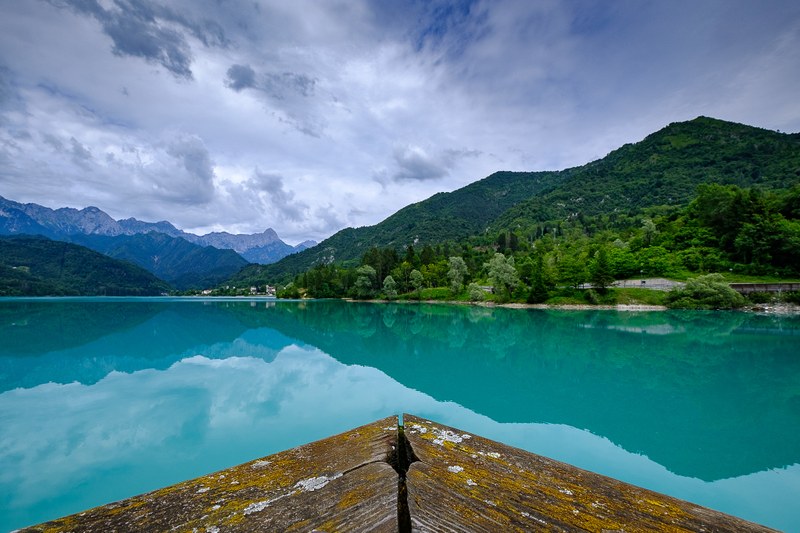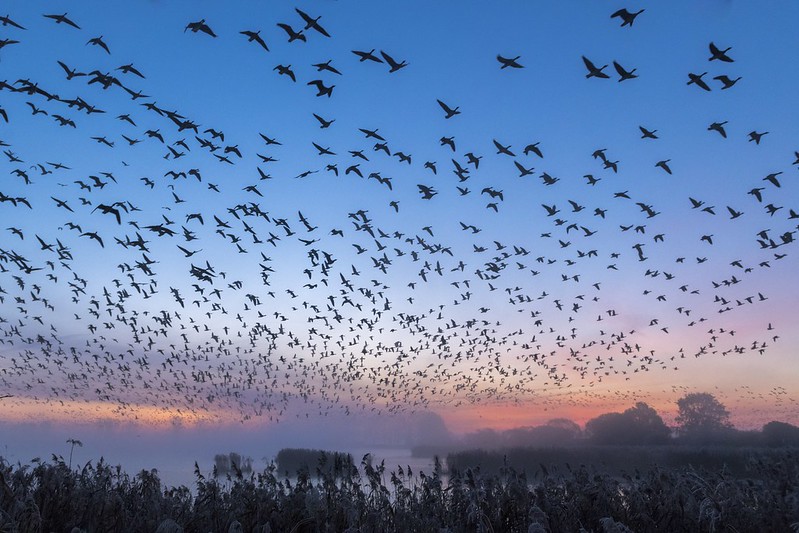All official European Union website addresses are in the europa.eu domain.
See all EU institutions and bodiesEurope’s nature is filled with forests, mountains, vast plains, long rivers, deep blue seas and refreshing lakes. But it also is under threat. Unsustainable farming and forestry practices, pollution, climate change and invasive species are stressing and destabilising all natural systems in Europe. The result is a biodiversity crisis. The EU is taking steps to protect and restore nature.
Europe’s nature is under threat. Humans have been altering Europe’s natural landscapes and impacting the life dependent on these ecosystems for thousands of years. Our assessments show that many terrestrial and aquatic ecosystems and species are at risk of irreversible damage or, in some cases, extinction. Europe is consuming more than its nature can provide.
To protect nature in Europe and in the world, we need to transform the way we produce food, move around, produce energy, manufacture goods, use chemicals, and what we consume.
Agriculture provides us with the food we need to survive. But at the same time, its reliance on artificial fertilisers and chemical pesticides causes contamination of our soils, air, rivers, lakes and seas and causes harm to plants, animals and soil biodiversity. Overexploitation of many commercial fish stocks threatens the marine ecosystem.
Cities have been growing at the expense of natural areas, farms, and forests. In addition, our roads and railways have been fragmenting the landscape, limiting many species’ ability to move and migrate. Air pollution from agriculture, transport or industry impacts many ecosystems.
Climate change affects rainfall and average temperatures, impacting many plants’ and animals’ ability to survive in new climatic conditions. It also impacts seasonality and causes destructive extreme weather events, including long-lasting droughts.
Through a series of policies and legislation, Europe has made some progress toward protecting its nature. For example, a growing share of its land and marine areas are designed as protected areas.
Still, much more must be done to protect and restore nature and allow it to help us cope with climate change. The European Green Deal, with its policy packages on biodiversity, climate change, pollution and circular economy, offers a wider and more effective transition towards a sustainable Europe. Healthy ecosystems not only provide us food and shelter, but also improve public health as well.
Strengthening society’s engagement with nature
Protecting biodiversity takes more than strong policies. It also depends on how people perceive, value and interact with nature. These views are often diverse. Therefore, targeted information and inclusive policies are important to influence citizens’ behaviour and support action for nature.
Our latest EEA Briefing talks about how cultural attitudes shape societal action for nature.


Almost half of the EU Biodiversity Strategy recommendations in place
A new assessment by the European Commission’s Joint Research Centre and the EEA shows that nearly half of the actions under the EU Biodiversity Strategy are now in place. The strategy aims to set Europe’s biodiversity on a path to recovery by 2030.
While significant policy steps have been taken to reduce pressure on nature, faster action is needed on protected areas, organic farming and reducing pesticide use.
Do you need more information about Europe's nature?
Pollution, over-use and climate change threaten Europe's lakes, rivers and groundwater
Agriculture is the most significant pressure impacting both surface and groundwaters, according to the EEA report ‘Europe's state of water 2024: the need for improved water resilience’. This results from water use and pollution from the intensive use of nutrients and pesticides.
The EEA’s report shows that, despite some progress, Europe’s waters and aquatic ecosystems are still severely impacted by chemicals, predominantly by air pollution from coal-powered energy generation and diffuse pollution by nutrients and pesticides from agriculture. Habitat degradation is also widespread. Adding to the challenge to protect aquatic ecosystems is climate change, which is disrupting weather patterns and further increasing pressures on water resources and management.


Birds: an indicator of environmental health
Birds are sensitive to environmental pressures and their populations can reflect changes in the health of the environment.
Long-term trends show that between 1990 and 2021, the index of 168 common birds decreased by 12% in the EU. The decline was much stronger in common farmland birds, at 36%, while the common forest bird index decreased by 5%.
At present, it seems unlikely that the decline in populations of common birds can be reversed by 2030.

